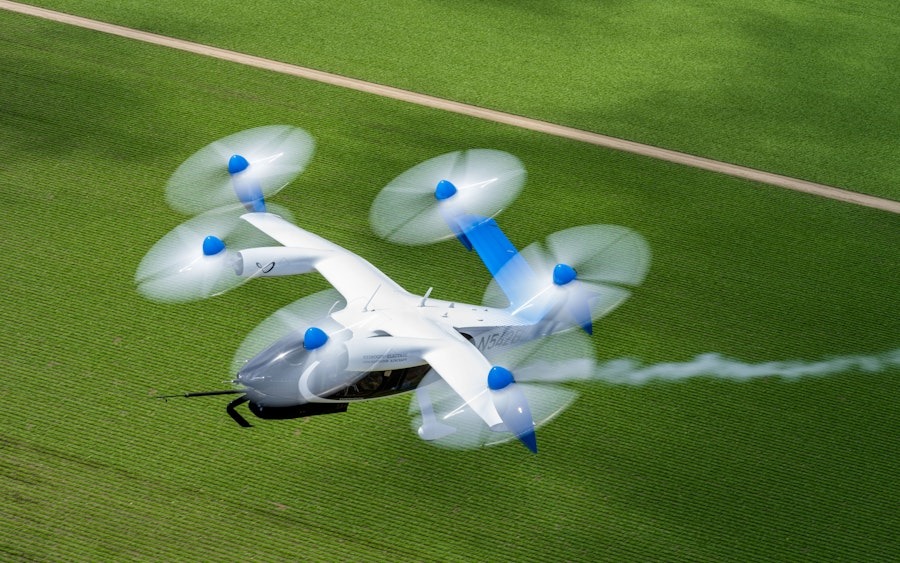Joby Aviation, a pioneer in next-generation aviation technologies, has successfully completed a groundbreaking 523-mile flight using a hydrogen-electric air taxi. This flight, conducted over Marina, California, marks a significant advancement in zero-emission regional travel, showcasing the potential of hydrogen fuel cells in aviation. The aircraft, which operates with vertical take-off and landing capabilities, emits only water as a byproduct, aligning with global efforts to reduce carbon emissions in aviation.
The hydrogen-electric technology, developed by Joby’s subsidiary H2FLY, was demonstrated on June 24, 2024, and is a key component of Joby’s strategy to lead the green hydrogen revolution in aviation. This achievement builds upon the company’s existing battery-electric air taxi program, further diversifying its technological portfolio to include both battery and hydrogen fuel cell solutions.
JoeBen Bevirt, CEO of Joby, expressed his vision for the future of travel, highlighting the possibility of flying between major cities like San Francisco to San Diego or Boston to Baltimore without traditional airport check-ins and with zero emissions. The successful test flight signifies a move closer to this reality, leveraging the extensive design and certification groundwork laid by the company’s battery-electric aircraft development.
The test flight utilized a pre-production prototype originally designed for battery operation, which was modified to include a liquid hydrogen fuel tank and a fuel cell system. This setup enabled the aircraft to complete its journey with 10% of its hydrogen fuel load remaining, proving the viability of hydrogen for extended flight ranges.
Supporting this innovative project is the U.S. Air Force’s Agility Prime program, which aligns with broader goals to diversify energy sources and reduce energy demands in defense operations. The program’s acting branch chief, Jacob Wilson, and Jeff Marootian, Principal Deputy Assistant Secretary for Energy Efficiency and Renewable Energy, both praised the initiative for its potential to decarbonize aviation and integrate clean hydrogen into future transportation systems.
California’s leadership in clean technology and manufacturing was also emphasized by Dee Dee Myers, Senior Advisor to Governor Gavin Newsom. Myers commended Joby’s efforts in pushing the boundaries of clean energy and aviation technology, contributing to the state’s environmental and economic goals.
Looking ahead, Joby Aviation is on track to commence commercial operations with its battery-electric air taxi by 2025 and continues to explore the full potential of hydrogen in aviation. The company’s ambitious plans are supported by a solid financial backing and partnerships with major industry players, positioning it as a leader in the transformation of the aviation sector towards a more sustainable future.



